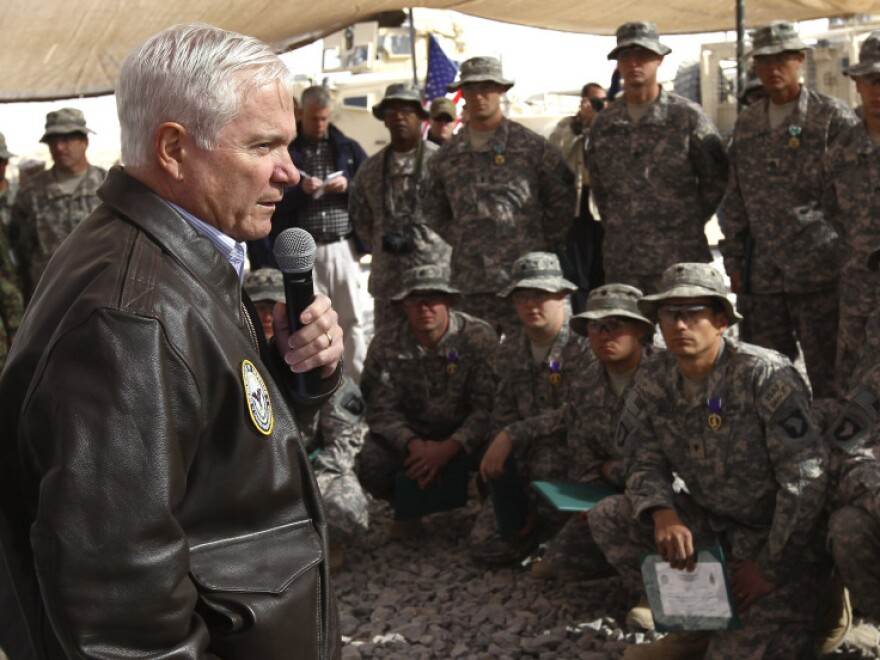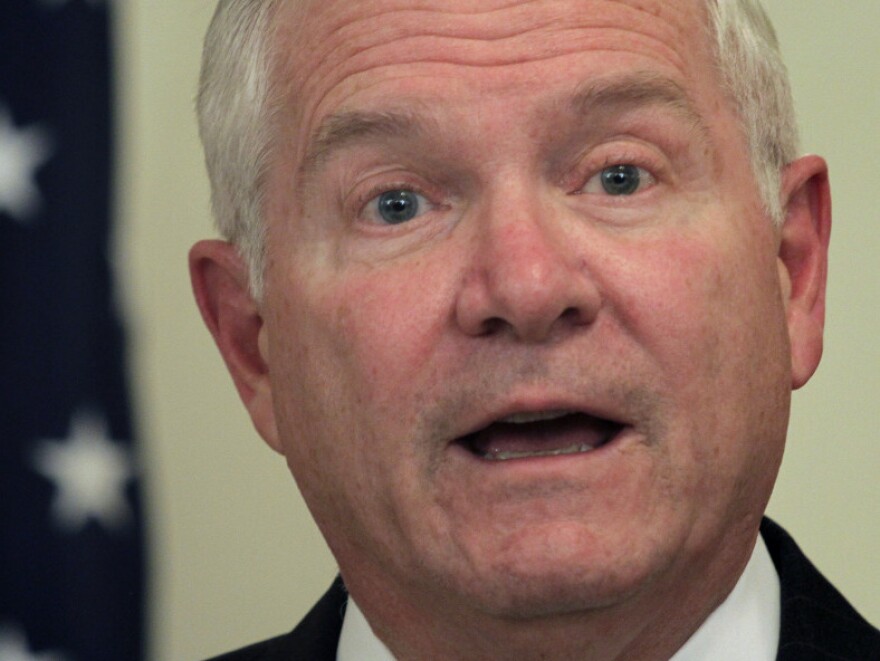Secretary of Defense Robert Gates has made up his mind that the U.S. war strategy in Afghanistan is working. His assessment will shape the conclusions of the Obama administration's Afghan strategy review, which is expected later this month.
Gates is in Afghanistan this week, conferring with troops and commanders, and his upbeat assessment is based partly on what he hears from them.
"I will go back convinced that our strategy is working and that we will be able to achieve the key goals laid out by President Obama last year," he said at a news conference Wednesday in Kabul. "Progress has exceeded my expectations. The Taliban control far less territory [than one year ago, and] more and more Afghan people are able to live without being terrorized."
That's just the first step. The next goal is getting Afghan forces to take responsibility for providing security, one province at a time, and ultimately for the Afghans to take full control of the security situation by the end of 2014. At least, the Pentagon hopes Afghan security forces can do that.
Col. Art Kandarian, who leads U.S. troops in two districts in Kandahar that have been a focal point of combat operations in the past few months, has assessed the Afghans. "They're never going to be the United States Army and they never have to be," he says. "But they stand with us and we're winning each fight."
Progress has exceeded my expectations.
Defining the effectiveness of U.S. strategy, Kandarian says his forces have pushed insurgents away from the cities where most Afghans live and farther out into the desert and mountains, where they are less effective.
Gates spoke about the progress to members of the 101st Airborne at their forward operating base. "You have taken new territory, cleared it, secured it and held it. This is a critical part of our strategy and of the current campaign, and you have been enormously successful," he said.
Now that Gates has declared that the current strategy is working, the question is what such an endorsement means for operations on the ground. One top U.S. commander in Afghanistan says essentially that the only thing concrete about this war is that it's fluid, and troops have to adapt all the time. Kandarian agrees.
"I wouldn't say that our clearing is done. We remain on the offense while building our defense," he says.
It's the same story in the next province over, Helmand. The Marines there have been in heavy fighting for the past year. And there, too, the question is when Afghan forces will be ready to take over the fight.

"When we see that they’re ready to shoulder it, we gotta move off to the side," says Maj. Gen. Richard Mills, the commanding officer in Helmand. "I don’t think it's going to be a dramatic moment in time. I would much rather have someone wake up one morning and look around and say, 'Gee, didn't the Marines used to hang around here?' "
Most military officials agree that with at least four more years of combat operations likely, that moment is still a long way off.
Copyright 2020 NPR. To see more, visit https://www.npr.org. 9(MDAxNDQ2NDAxMDEyNzU2NzM2ODA3ZGI1ZA001))




